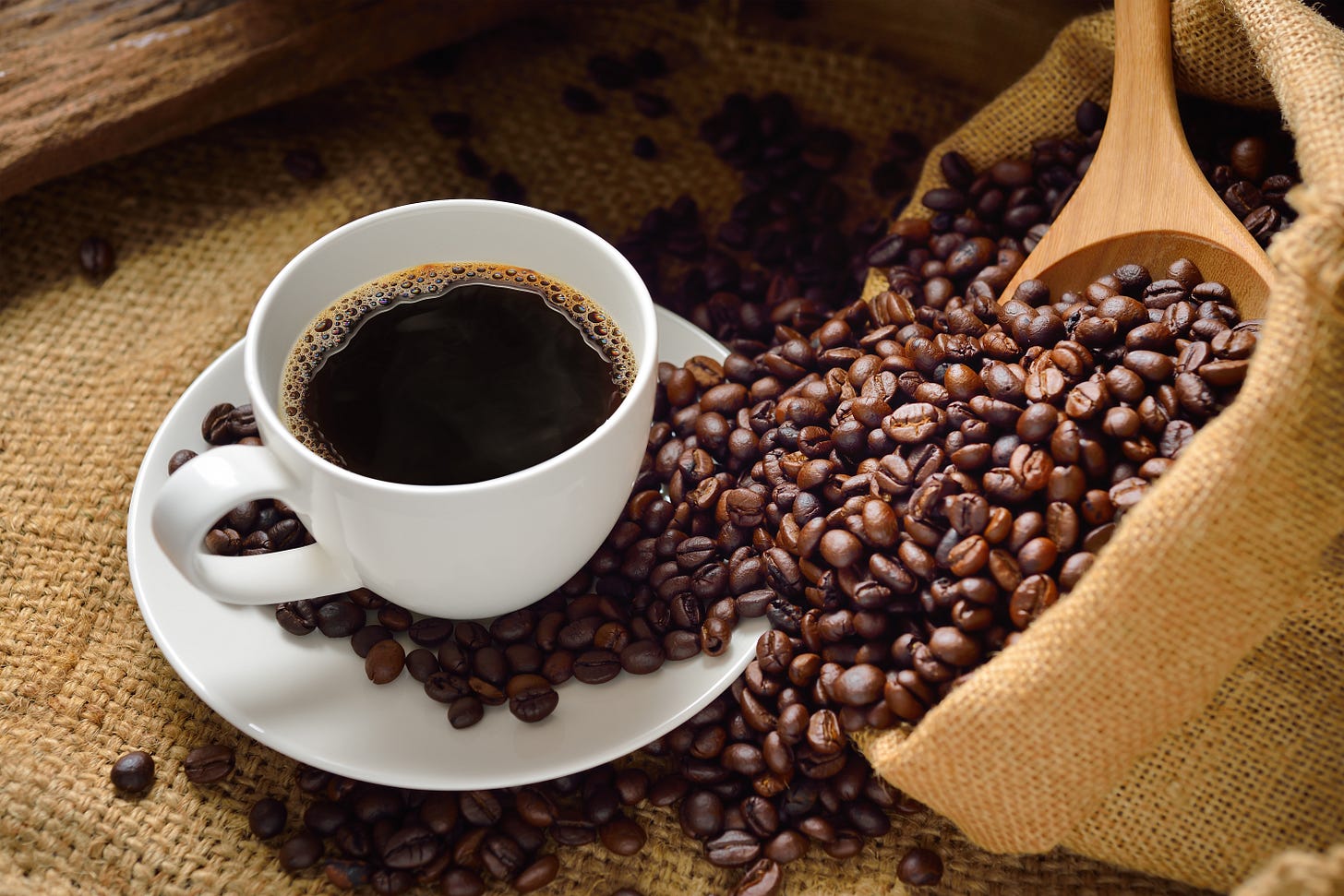Coffee is an herb, too
Yes, of course it is.
We’ve been drinking coffee in the West for only about three hundred years, but people in the Middle East began drinking it centuries before that. Legend has it that a Yemini shepherd watched his goats nibble reddish-brown berries from a bush and then leap and dance, having a high old time—a caffeine rush, no doubt. The shepherd told his story to a monk, who (having fought off drowsiness during many long prayers) knew a good thing when he heard it. He boiled the berries in water and before you could say Starbucks, he was pouring cups of dark, rich mocha for himself and his fellow monks, who were also aware of the virtue of staying awake.
Whatever the truth of the legend, this herbal beverage spread quickly from Africa through Arabia and Egypt, gathering converts wherever it was brewed. It was considered medicinal and used as a stimulant, diuretic, a treatment for headaches, muscle aches, and general debilitation. Over the years, coffee was recommended as a treatment…
Keep reading with a 7-day free trial
Subscribe to Thyme, Place & Story to keep reading this post and get 7 days of free access to the full post archives.




